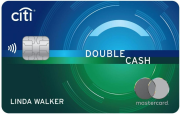The content on this page is accurate as of the posting date; however, some of the offers mentioned may have expired.

Consumer, labor and civil rights groups backed by some members of Congress have been pressing for a new and strong regulation against the unfair and deceptive practices pursued by card companies, now when it has become especially urgent with the US economy tightening.
As noted by the groups, it is high time for the Credit Card Act to become aggressive in protecting cardholders, especially financially vulnerable families, from companies' tricks. On April, 30 Senate Banking Committee Chairman Chris Dodd introduced the Credit Card Reform Bill which, in brief outline, embraces the following points.
- Banning unfair credit card rate hikes and "any time, any reason" clause.
- Demanding honest penalty rates.
- Eliminating hidden and unfair finance charges. It will be required that card companies allocate consumers' payments to the highest rate balances first to protect cardholders from excessive unfair finance charges.
- Eliminating excessive penalty fees and prohibiting late fees on on-time payments.
There are a number of more clauses in the Credit Card Accountability, Responsibility and Disclosure Act but these are sited to be most significant.
The question of deceptive practices concerning credit cards issuers has also been raised by the federal agency overseeing savings associations (the Office of Thrift Supervision) and the fact that it has been joined by the Federal Reserve Board and the National Credit Union Organization to issue identical credit card rules signifies a sure wind of change in credit consumers' favor.
The joint proposal from all the three organizations is wholly addressed to tricky and vague credit practices but evidently the FRB rule, which will apply to banks, will benefit customers in the most. Once the rule is approved by the other two agencies - OTS and NCUA - it will be published on FRB site and will be open for public comments.
As all the three agencies agreed on issuing identical proposals, each of them will invariably address: unfair interest rate hikes on outstanding balances, unfair payment allocations, unfair fees and methods of computing balances, deceptive credit card promotion offers and more.
If you have read a number of previous articles on the subject and are reading this one, you must have noticed that the want for tough reform regarding marketing and servicing of credit cards in the country has become really urgent by now.
According to Fed Chairman Ben S. Bernanke, the proposal is designed as a device of regulating and maintaining fairness in credit cards business and stresses its special importance for subprime cardholders and customers relying on plastics for daily purchasing and other financial activity.
As it is supposed, once the proposal is approved and then legitimized, customers will be able to correctly plan credit card management and predict how their daily financial decisions will affect their credit rating.
The FRB's provisions are a modest but decided step in the Board's firm plan to enhance protections for credit card users.
Up to this point we have looked at the reform from the side of customers' benefits and protections. However, there is the loosing party - the American Bankers Association - blaming the Federal Reserve for the proposal and calling it unprecedented intrusion into the credit card marketplace which will kill healthy competition, bring in higher prices, eliminate consumer choices and limit access to credit.
Which part is right and who would you support? We will analyze the ABA's response to the proposed rule in the article coming, so that you could build up a clear picture of benefit or maybe harm you will retrieve from the rule.





